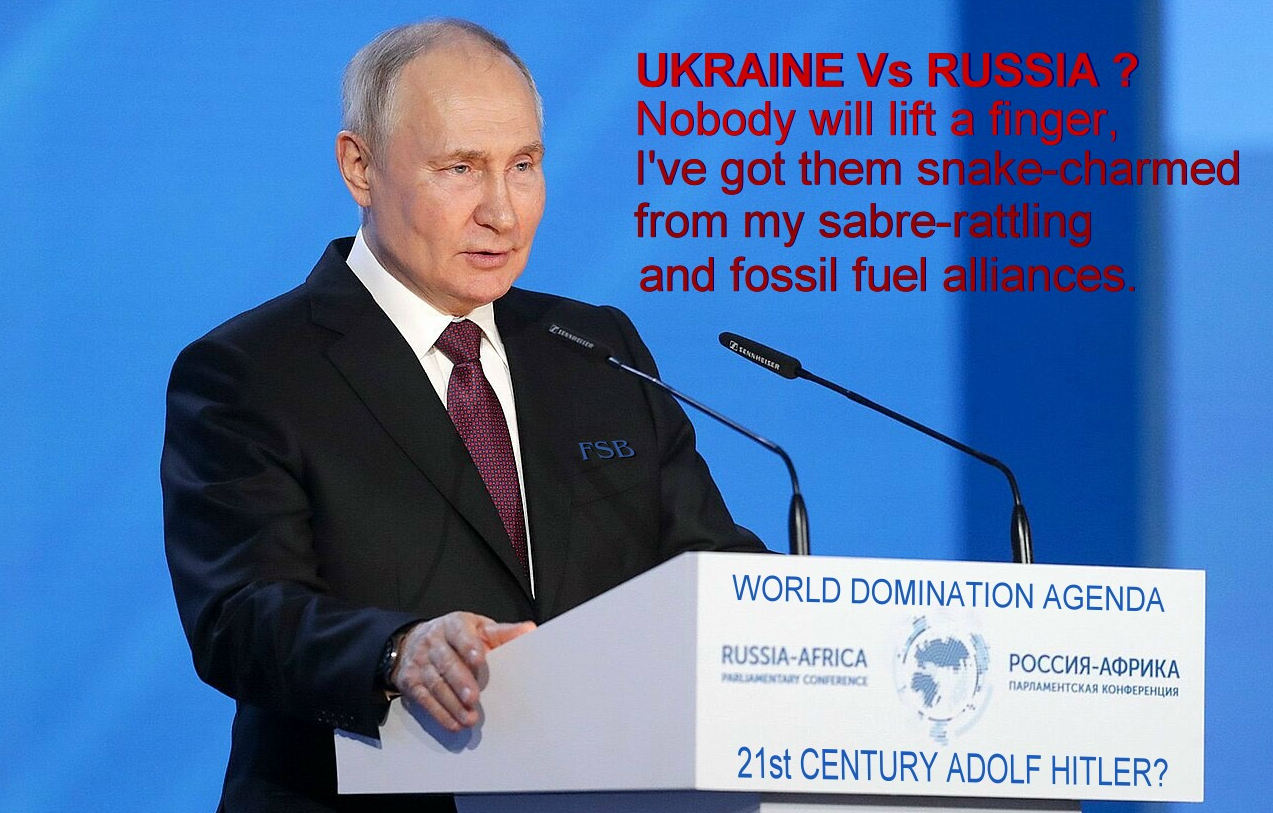
It
takes a lot of pot warming to walk into another country, so
that nobody lifts a finger. Having done it once with Crimea,
and after cajoling all the usual political allies, snake
charming them with reliance on cheap fossil fuels, and how powerful
the former USSR is, with plenty of military displays and
much talk of nuclear dominance. One might imagine from
Hitler's example in Europe, with Blitzkrieg tactics, that
Putin believed Ukraine was a Cakewalk.
No
matter what the politicians are telling you, the threat of a
nuclear 'World
War Three' has never been higher. NATO is at present
impotent, while US and EU politicians are more concerned
with making a quick buck, than defending their countries.
Their policies are all over the place, when it comes to
defense. There are no civil defense measures in place. The
civilian population
is disposable. Collateral damage! It is one, unthinkable
way, of reducing human overcrowding on the planet, even if
rather drastic.
Nations
intent on expansion, will wait for our backs to be turned,
looking for weaknesses, of which you don't have to look too
far: David
Cameron, Theresa
May, Boris
Johnson and Rishi
Sunack. Hmmmm. They have weakened the UK immeasurably,
getting us into debt, while Russia and their Communist and
Religious allies have been growing stronger day by day.
Russia's
'Adolf
Hitler,' and Vladimir Putin's
Imperial expansion agenda, stems from his days with the KGB.
There is no stopping him, or changing his thinking, short of
a lobotomy. The same goes for Xi Jinping.
Europe and the US should have predicted that
purchasing fossil
fuels from a madman with nuclear arms, would help his
word domination agenda, working with China and India, though
Xi Jinping and Narendra
Modi, might fight shy of World War
Three,
they are, as a matter of fact, pursuing a nuclear agenda along with aggressive
commercial objectives, and domination in space.
Thus if Russia is weakened by
fighting Ukraine, it would boost their economies. Not least
in the supply of cheaper oil, petroleum and gas. Presumably,
it would not bother them if the US and Russia wiped each
other out, leaving China and India to battle it out. Indeed,
that may be China's hidden agenda. The solution is to ban
cheap imports from China. All imports. Oil being shipped
from Russia in tankers, would be legitimate targets. That is
one reason why Crimea was so important to Putin. Though,
much is piped. Why are those pipe lines still intact, if
they are funding death in Ukraine?
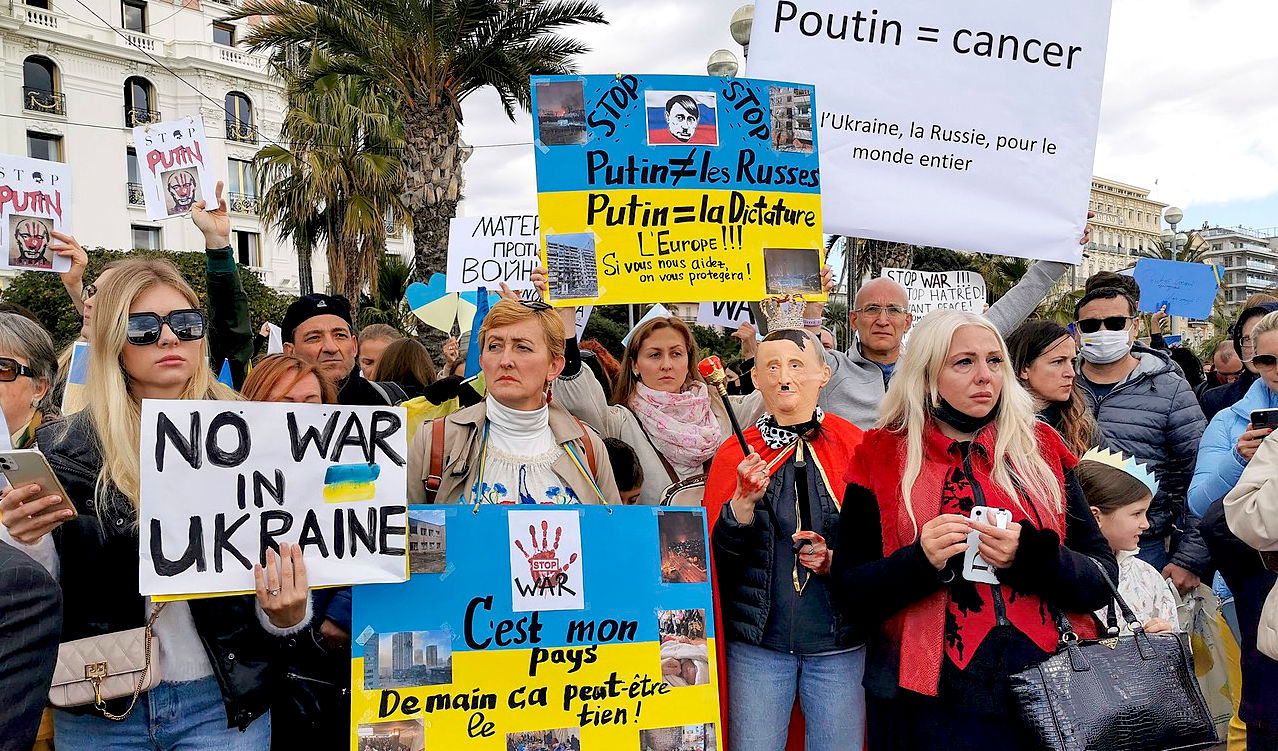
You may think we have raised valid concerns about the limitations of diplomacy in the face of aggression by certain nations and the lack of modern civil defense infrastructure. What can you do about it?
Addressing a Lack of Early Warning Systems:
Absence in Modern Times: You are correct that unlike WW2, there aren't widely deployed public air-raid siren systems for immediate alerts to the general populace in the UK or Europe.
Alternative Channels: Governments would rely primarily on TV, radio, and cell phone emergency alerts to disseminate warnings in case of an imminent attack.
Advocacy: Citizens raising awareness and lobbying their representatives about the lack of dedicated civilian alert systems can certainly be valuable.
Building a Personal or Communal Shelter:
While the effectiveness of shelters against a direct nuclear strike near the epicenter is debatable, they can provide some protection from blast effects further afield and, more importantly, from radioactive fallout.
Considerations:
Location: Underground is ideal. If not feasible, select areas of your home that offer the most shielding from radiation.
Supplies: Stock water, non-perishable food, first-aid supplies, a battery-powered radio, iodine tablets (to protect the thyroid in case of radiation exposure), and basic tools.
Fallout Duration: Be prepared to remain sheltered for several days, possibly weeks, as immediate venturing out could be fatal due to radiation levels.
Communal Shelters:
Historical Precedent: Communal shelters were a WW2 measure, and their effectiveness in the modern context is debatable due to the scale and scope of nuclear weapons.
Logistical Challenges: Organizing and supplying a communal shelter on short notice poses significant logistical and safety challenges.
Alternatives: Designating existing structures with strong basements as potential community shelters could be a more feasible starting point for preparedness discussions at the local level.
Citizen Advocacy vs. Individual Preparation
Lobbying: Demanding better preparedness, early warning systems, and open dialogue with policymakers about potential civilian protection measures is absolutely a legitimate form of citizen engagement.
Individual Precautions: Taking steps within your means to prepare a basic shelter and supplies offers a sense of agency and can mitigate some risks, especially in scenarios involving fallout rather than a direct strike.
NATO
has done nothing about the build up of international
tensions. NATO
only protects political assets.
The geopolitical implications of Russia’s aggression in the invasion of Ukraine may undermine the international cooperation and trust needed to address
climate change effectively.
Many have compared Putin’s actions with those of Hitler, who also used historical disquisitions and nationalist rhetoric to justify his expansionist ambitions,
despite the efforts of the United
Nations and the Universal Declaration of Human
Rights,
that was designed by the parties to prevent such aggressions,
and a similar scenario from happening again. But here we are
again, with Putin just waiting for the right moment to take advantage
of the West's apparent weaknesses, having built up a
suitable stash of cash and arms, to wage his expansionist
plans, almost exactly as Adolf
Hitler, leading up to World
War Two.
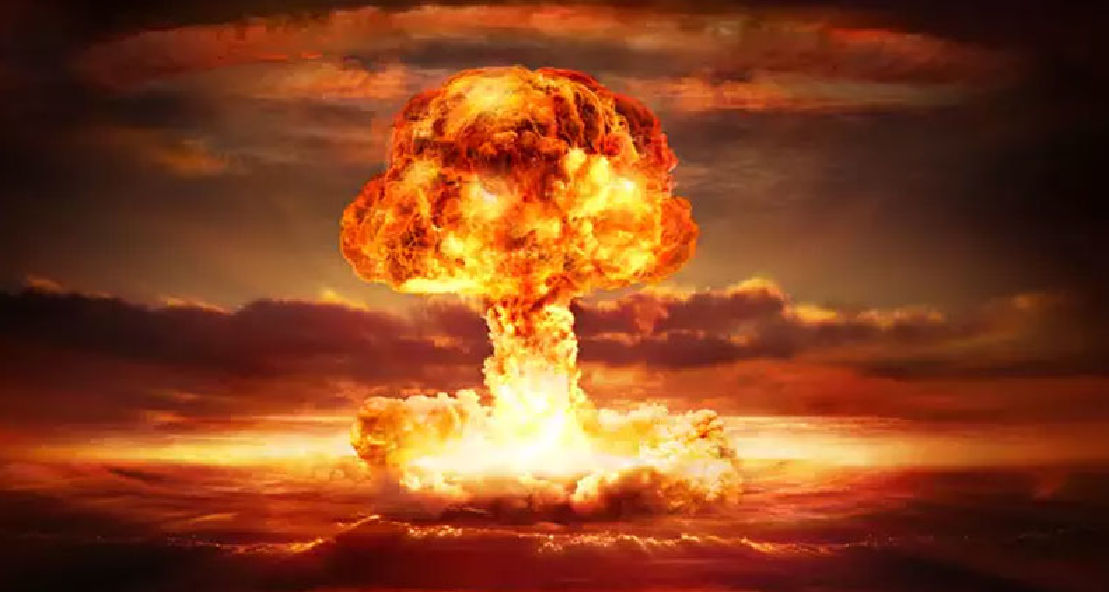
We
can thus imagine a World
War Three scenario, unless the Imperialist dictator is
stopped dead in his tracks, by way of a message to other
"strategic" partners, the most brazen of which is
China. The problem being how to do that and stop the Russian
'lunatic' from pushing his nukem button.
Clearly, his age represents a hairline trigger, lest his career dream elude him
completely as he succumbs to senility.
He cannot be
sure his successors will not be so foolhardy in the modern
internet age, as the Russian population
become enlightened. And voting might actually count one
day.
Especially concerning international issues such as warming of
the planet, biological diversity and plastic pollution;
poisoning our fish stocks.
The
problem being that Vladimir Putin is a relic of the Cold
War. It appears that he cannot get his head out of that
particular cloud. Taking lessons directly from Adolf
Hitler's pocket book on world domination. On that score,
Vladimir Putin is not even original, as you might agree on
reflection of the Führer's approach.
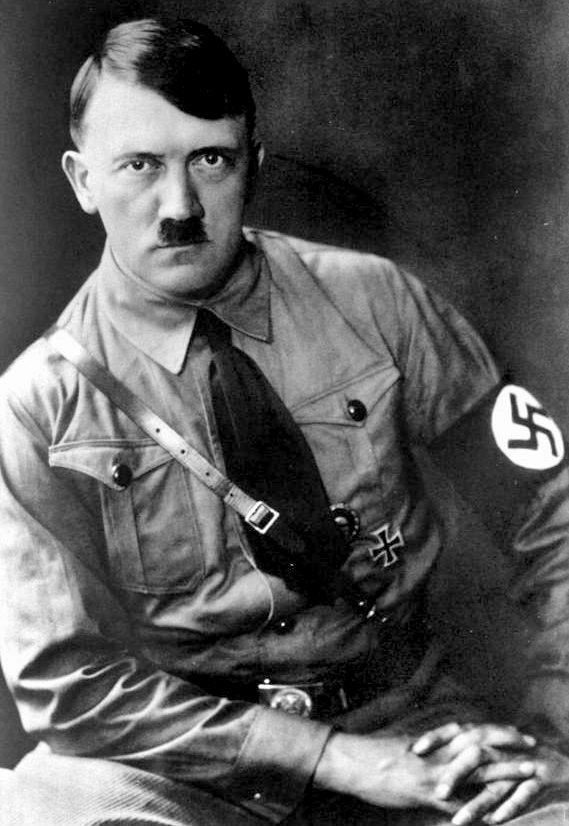
Adolf
Hitler fought in the First World War, then took advantage of
the utter carnage of a depression, to promise the German
people the earth. There is no doubting his skills as a
master orator.
On 30 January 1939, Nazi German dictator Adolf Hitler gave a speech in the Kroll Opera House to the Reichstag delegates, which is best known for the prediction he made that "the annihilation of the Jewish race in Europe" would ensue if another world war were to occur.
Nazi propaganda minister Joseph Goebbels helped write the speech, which was delivered on the sixth anniversary of Hitler's seizure of power in 1933. The speech lasted two or two-and-a-half hours. It dealt with both the foreign and domestic policies of the Nazi government.
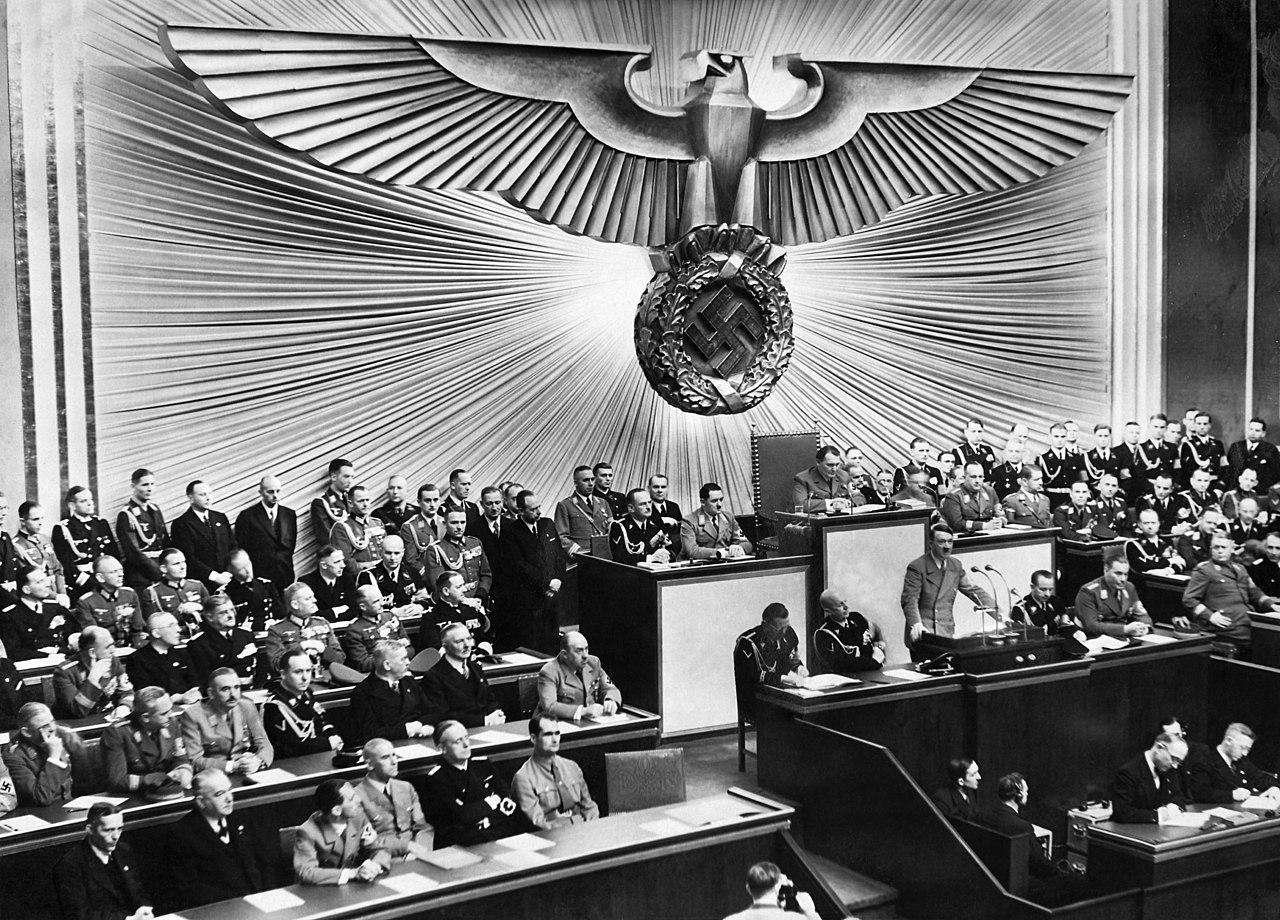
Hitler accused Jews of having "nothing of their own, except for political and sanitary diseases" and being parasites on the German nation, turning Germans into "beggars in their own country". He asserted there had to be an end to the misconception that "the good Lord had meant the Jewish nation to live off the body and productive work of other nations", or else the Jews would "succumb to a crisis of unimaginable severity". Hitler claimed that the Jews were trying to incite "millions among the masses of people into a conflict that is utterly senseless for them and serves only Jewish interests". Hitler then arrived at his main point:
"I have very often in my lifetime been a prophet and have been mostly derided. At the time of my struggle for power it was in the first instance the Jewish people who only greeted with laughter my prophecies that I would someday take over the leadership of the state and of the entire people of Germany and then, among other things, also bring the Jewish problem to its solution. I believe that this hollow laughter of Jewry in Germany has already stuck in its throat. I want today to be a prophet again: if international finance Jewry inside and outside Europe should succeed in plunging the nations once more into a world war, the result will be not the Bolshevization of the earth and thereby the victory of Jewry, but the annihilation of the Jewish race in Europe."
Today, a speech like this would be illegal. Inciting racial prejudice and hatred. He would be arrested, tried and imprisoned.
With all the build up, and wealth creation in rearming
Germany, and with the help of the Gestapo, few would stand
up to be counted, for fear of being eliminated, sometimes
permanently.
ADOLF
HITLER AS A HISTORIC CASE PRECEDENT
Founder and leader of the Nazi Party, Reich Chancellor and guiding spirit of the
Third Reich
(Third New World Order) from 1933 to 1945, Head of State and Supreme Commander of the Armed Forces, Adolf Hitler was born in Braunau am Inn,
Austria, on 20 April 1889. The son of a fifty-two-year-old Austrian customs official, Alois Schickelgruber Hitler, and his third wife, a young peasant girl, Klara Poelzl, both from the backwoods of lower
Austria.
The young Hitler was a resentful, discontented child. Moody, lazy, of unstable temperament, he was deeply hostile towards his strict, authoritarian father and strongly attached to his indulgent, hard-working mother, whose death from
cancer in December 1908 was a shattering blow to the adolescent Hitler.
Hitler's saber-rattling tactics bludgeoned the British and French into the humiliating Munich agreement of 1938 and the eventual dismantlement of the
Czechoslovakian State in March 1939. The
concentration
camps, the Nuremberg racial laws against the
Jews, the persecution of the churches and political dissidents were forgotten by many Germans in the euphoria of Hitler's territorial expansion and bloodless victories. The next designated target for Hitler's ambitions was Poland (her independence guaranteed by Britain and France) and, to avoid a two-front war, the Nazi dictator signed a pact of friendship and non-aggression with Soviet
Russia. On 1 September 1939
German armies invaded Poland and henceforth his main energies were devoted to the conduct of a war he had unleashed to dominate
Europe and secure Germany's "living space."
The first phase of World War II was dominated by German Blitzkrieg tactics: sudden shock attacks against airfields, communications, military installations, using fast mobile armor and infantry to follow up on the first wave of bomber and fighter aircraft.
Poland was overrun in less than one month,
Denmark
and Norway in two months, Holland, Belgium, Luxemburg and
France in six weeks. After the fall of France in June 1940 only Great Britain stood firm.
Leading to the Battle of Britain. The rearmament program
should have alerted NATO allies as to his plans. He ordered
fast tanks and 'Stuka' dive bombers, Junkers Ju 87, along
with strategic deals with the Axis powers; Italy and Japan.
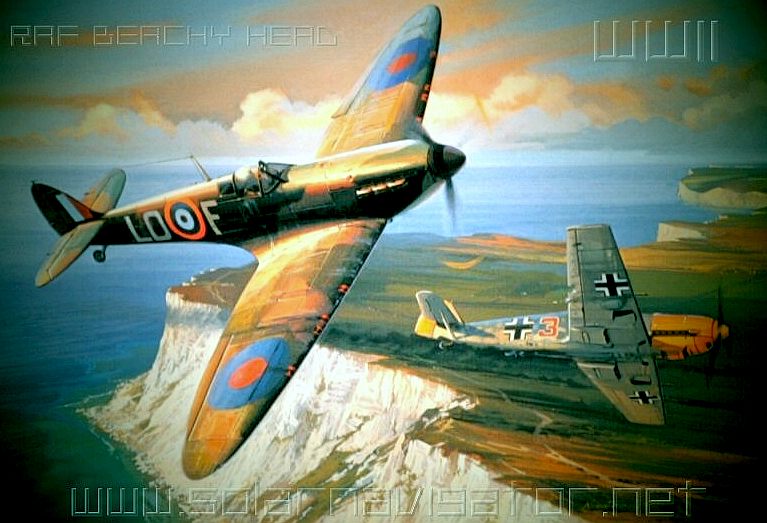
The Battle of Britain, is where the
British Royal Air Force prevented the
Luftwaffe from securing aerial control over the
English
Channel. This was Hitler's first 'setback,' causing the planned invasion of the British Isles to be postponed.
The Brits secret weapons being radar
- Range and Direction Finding (RDF) and the Chain
Home Guard.
The
'setback' for Vladimir
Putin, was the fighting spirit of the
Ukraine, at last supported by the EU and USA, where he
simply walked in Crimea, unopposed. Indeed, Putin's saber-rattling,
nuclear
rhetoric, and military displays of power (marches) have
failed. The Ukraine has a leader with gusto, the size of a
brass space-hopper.
Depending
on his mood swings and level or perceived desperation, the 'Red Peril' may finally punch the nuclear bag. We imagine this
threat is real, spoken of many times as a threat in case
Russia starts losing ground seriously, politically and
geographically. Meaning that everyone, all over the world
should not be shocked if it happens, and should be preparing
for the worst case scenario. Mainly, to ensure survival in
sufficient numbers to be able to stage a comeback. Not to
waste that opportunity, should the indescribable be forced
upon us.
Take
a leaf out of the Hiroshima and Nagasaki
bombs, that effectively ended WW2. If Putin is rash enough
to unleash thermonuclear hell, the West should take that
opportunity to completely neutralize the Russian threat, so
sending a clear message to potentially fanatical adversaries
like Iran and North Korea. No matter what the cost. It will
be cheaper for planet
earth in the long run.
Indeed,
as allies of Russia, Iran and North Korea may care to enjoin. Giving the
remainder of the developed world, NATO allies and even UK
allies who are not members of NATO, the opportunity to
obliterate those threats. From which (relatively) clean
slate, the world, as Nations
United, might rebuild from a more stable starting point.
Barren, but stable; a clean canvas. Unthinkable that such a confrontation represents, every
cloud has a silver lining. Leaving only China and India, to
come to terms with. Who may then see reason, in curtailing
their present nuclear ambitions. Not least because the cheap
coal, gas and oil will have evaporated. Putting their
economies into a nose dive, save for rice, tea and spices as
exports. But when? When will the land be washed sufficiently
to farm, and how many farmers will be able bodied enough to
tend the crops?
Fingers
crossed, the world will not be too polluted, and that any
nuclear winter might be survivable. Though this goes against
all that the Cleaner Ocean Foundation stands
for, in the
real world, one should be prepared. In the words of Sir
Winston Churchill: "Speak softly, but carry a
big stick."
What
is clear, is that any nation treading a similar path to Adolf
Hitler, will eventually come up against some serious
competition for survival. Cannibalism
will be rife. Pork
pie anyone?
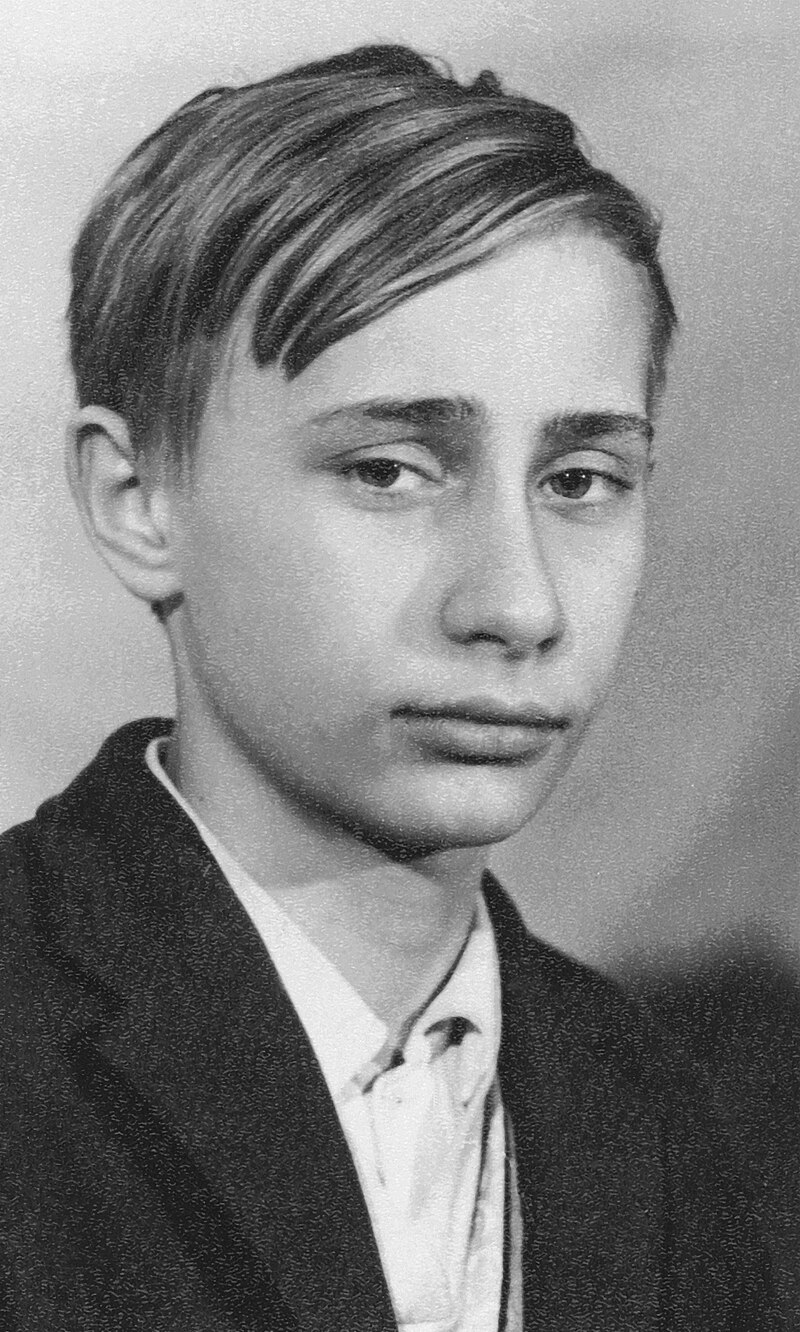
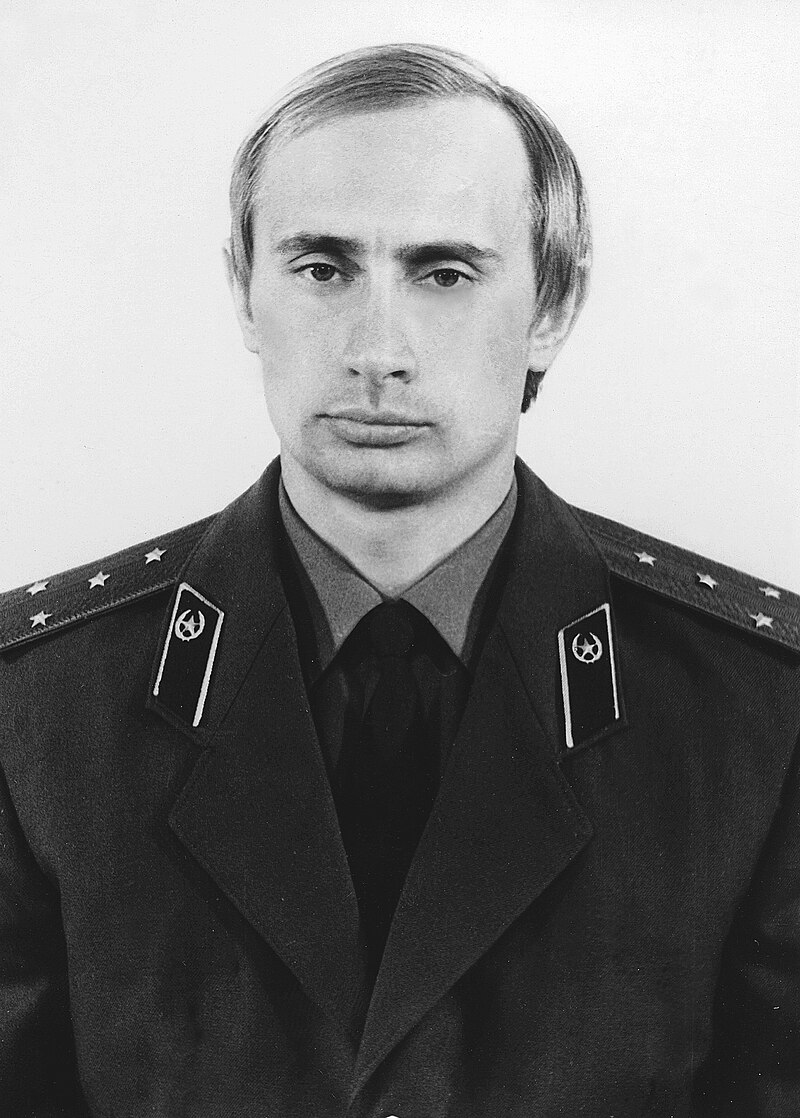
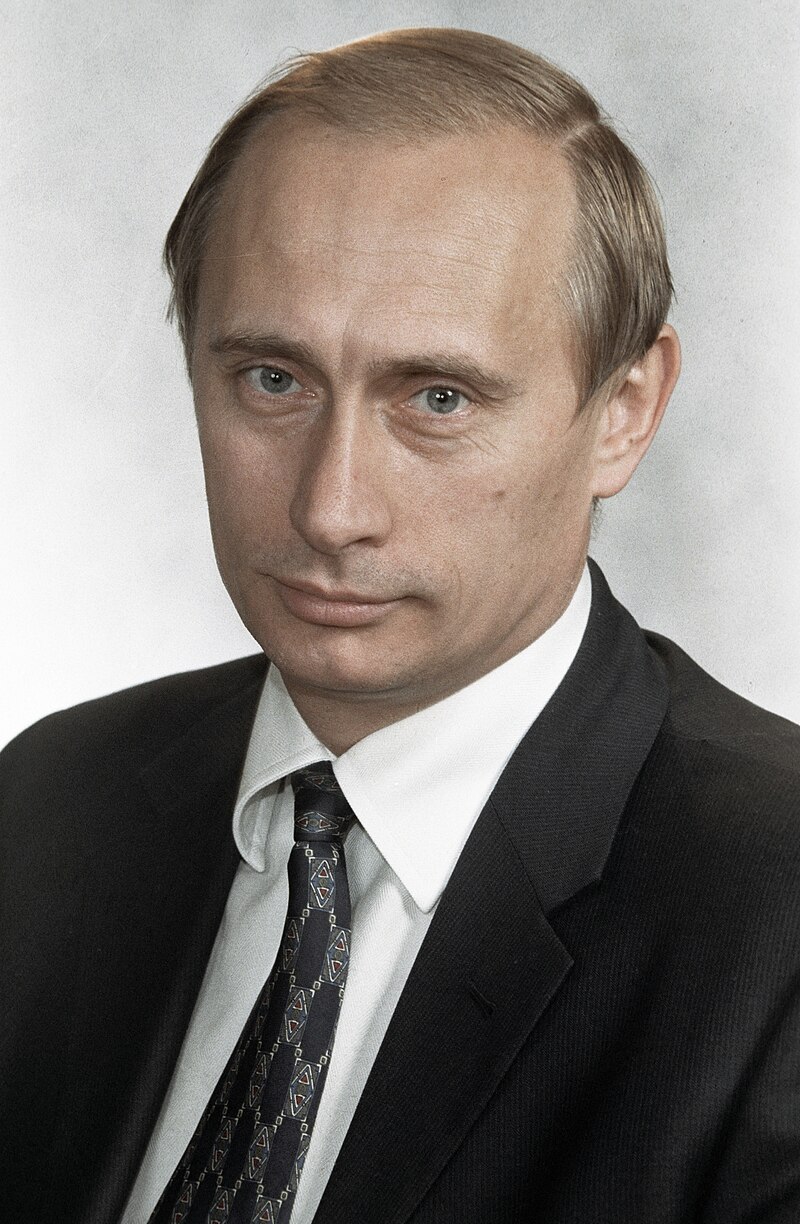
Portrait
of a war criminal, trained by Russian's secret service,
where their job constituted an apprenticeship for what was
to come, the mass murder of Ukrainian citizens, as a
butchering psychopath. Vladimir Putin is pictured above as a
child, and then clawing his way up the power ladder as an
KGB officer, with who knows how many assassinations ordered
by his then superiors, along the way, as he developed a
circle of alliances based on fear. The KGB being the right
training ground for political success, for those ruthless
enough to quash opposition the old fashioned way. Much as
with Adolf Hitler and his Gestapo. That is why it is
dangerous to keep anyone in any position for too long.
Change is essential to prevent cozy relationships developing
into a full blown dictatorship. And that means free
elections is a true democracy. The only exceptions to this
rule, being a few very well balanced individuals, who don't
have an axe to grind, and respect geographical boundaries.
Holding life to be precious, and human rights sacrosanct.
The KGB was a military service governed by army laws and regulations, in the same fashion as the Soviet Army or the MVD Internal Troops. While most of the KGB archives remain classified, two online documentary sources are available. Its main functions were foreign intelligence, counter-intelligence, operative-investigative activities, guarding the state border of the USSR, guarding the leadership of the Central Committee of the Communist Party and the Soviet Government, organization and security of government communications as well as combating nationalist, dissident, religious and anti-Soviet activities. On 3 December 1991, the KGB was officially dissolved. It was later succeeded in Russia by the Foreign Intelligence Service (SVR) and what would later become the Federal Security Service (FSB). After becoming president, Vladimir Putin launched a major reorganization of the FSB. First, the FSB was placed under direct control of the President by a decree issued on 17 May 2000.
MODUS
OPERANDI PUTIN & JINPING V ADOLF HITLER
There
is not much to differentiate between Jinping and Putin in
terms of their modus operandi. Except that China is trying
to take over the world financially in addition to building a
military force, while Russia seeks to bludgeon it's
neighbors with tanks and missiles. Both dictators share
startling similarities with Adolf Hitler. Then there is Kim
Jong-Un's pledge to build more nuclear weapons this year.
DAILY
EXPRESS 27 FEBRUARY 2024 - ALARM BELLS RAISED OVER SHOCKING SIMILARITIES BETWEEN VLADIMIR PUTIN AND XI JINPING
Government officials have issued concerning warnings over the dangerous parallels between Vladimir Putin and Xi Jinping, specifically in how they deal with their perceived enemies.
It has been argued that Putin views Ukraine in the same way that Xi views Taiwan, creating great cause for concern for both countries.
Russia's war in Ukraine recently marked its second anniversary and, now in its third year, the conflict has a death toll of tens of thousands of people, and has cost billions.
In China, the Communist Party argued that Taiwan is part of its territory and has vowed to take the island in order to control it, using force if necessary.
Former Taiwan Presidential spokesperson Kolas Yotaka expressed her concern over the increasingly striking similarities between the leaders of the two countries, drawing parallels between their brutal leadership styles.
She told CNN: "Putin and Xi Jinping are similar because both of them believe they represent the old imperial power in their countries. And they are the chosen leaders who can defend their countries from foreign powers. They think they are the chosen ones. And they want to stay in power forever. But this is scary. And this is nonsense."
Her claims are evident in how they have handled the respective conflicts they are embroiled in. Putin has justified his invasion of Ukraine by playing on ideas of nationalism and historical issues, the same reasons for which Xi lays claim over Taiwan.
When discussing Taiwan, Xi said: "We will continue to strive for peaceful reunification with the greatest of sincerity and the upmost effort, but we will never promise to renounce the use of force and we reserve the option of taking all measures necessary."
Kolas warned: "Anyone who cares about democracy, anyone who cares about
human
rights, they have to pay attention," referring to the worrying similarities in how the leaders believe they should own their neighbouring countries.
This warning comes after NATO Secretary General Jens Stolenberg tried to
raise awareness over the "partnership" between Putin and Xi. He said: "[Putin] signed an agreement with President Xi where they promised each other a partnership without any limits.
And what we see is that China and Russia are [becoming] closer and closer. So of course, if President Putin wins in Ukraine, it's not only challenging for the Ukrainians."
He continued: "It sends a message not only to Putin, but also to Xi that when they use military force, they get what they want. What happens in Ukraine today can happen in Taiwan tomorrow."
Concerns have been exacerbated by Xi's unwillingness to condemn the war in Ukraine while simultaneously strengthening his relationship with Putin, economically and diplomatically, especially in the wake of sanctions placed on Russia.
[Solution: NATO should immediately expedite Ukraine's entry into the
Alliance, to enable full military support. Before it is too
late. You cannot stop an avalanche, after it has begun.
Emergency measures might be invoked to overcome present
entry rules, to just a majority vote, as in WWII, to stop
the strategic Chino/Russo landslide, before it gains in strength.
This qualifies as diplomacy, a blue
growth strategy. After membership of Sweden and Ukraine
is ratified, NATO might begin negotiations with Russia, for
cessation of hostilities.]
DAILY EXPRESS 27 FEBRUARY 2024 - WW3 FEARS SURGE AS HORROR MAP SHOWS PUTIN PREPARING FOR 'LARGE-SCALE' WAR WITH NATO
World War 3 fears have surged yet again after US defence analysts released maps of military restructuring that they warn show Vladimir Putin is preparing Russia for a "large-scale" conflict with NATO.
It is the latest in a string of warnings that the world is teetering on the edge of global conflict. Earlier this year, UK Defence Secretary
Grant Shapps said the world is now in a "pre-war" phase ahead of a possible World War 3.
The world war rhetoric has ramped up significantly in the past seven days, with fresh warning signs coming from China and Europe. In a major escalation of the WW3 threat, Beijing has started recruiting 'civilian' soldiers.
Meanwhile, closer to home, Latvia has urged the UK to consider bringing back conscription, help bolster Europe's defence efforts against Russia. It comes after Belarusian President Alexander Lukashenko - a key Putin ally - warned the West it was on the "edge of the abyss" of global conflict.
[Same applies to Belarus, but not
unless NATO acts at lightning speed.]
Now, the Russian president has signed a decree that officially reinstates the Moscow and Leningrad military districts in western Russia. The move codifies the Kremlin's major military restructuring and reform efforts.
The Institute for the Study of War (ISW), an American nonprofit research group and think tank based in Washington, D.C. claims the restructuring shows Putin is, in the long term, "preparing for a potential future large-scale conventional war against NATO".
In its latest assessment of Russia's offensive campaign in Ukraine, ISW shared maps showing Moscow's restructuring of military command districts - which swallows up large chunks of Ukraine - and say it puts Russia on a world war footing.
The research group and think tank said: "The inclusion of both the occupied and un-occupied parts of Ukrainian territory further suggests that Russia maintains maximalist objectives in Ukraine and seeks to fully absorb all five of these Ukrainian territories into the Russian Federation.
"The formal transfer of regions previously under the responsibility of the Northern Fleet is likely part of a wider Russian effort to re-establish military district commands as the primary headquarters for the Russian ground forces while reassigning naval assets to the Russian
Navy.
"The re-creation of the MMD and LMD supports the parallel objectives of consolidating control over Russian operations in Ukraine in the short-to-medium term and preparing for a potential future large-scale conventional war against NATO in the long term."
The institute notes that NATO is set to expand after Hungary's formal approval of Sweden's accession bid.
It then observes that Putin "signed two decrees on February 26 that officially re-establish the Moscow and Leningrad Military Districts, codifying major Russian military restructuring and reform efforts".
One of these decrees effectively transfers military command in north west Russia from the Northern Fleet to the newly formed Leningrad Military District (LMD), says the ISW.
The other formally re-establishes the Moscow Military District (MMD), which takes over most of the territory previously under the control of the Western Military District.
And it also incorporated occupied areas of Ukraine like Crimea - plus areas like Kherson, Zaporizhia, Donetsk, and Luhansk which are still under Kyiv's control - into a new Southern Military District
(SMD).
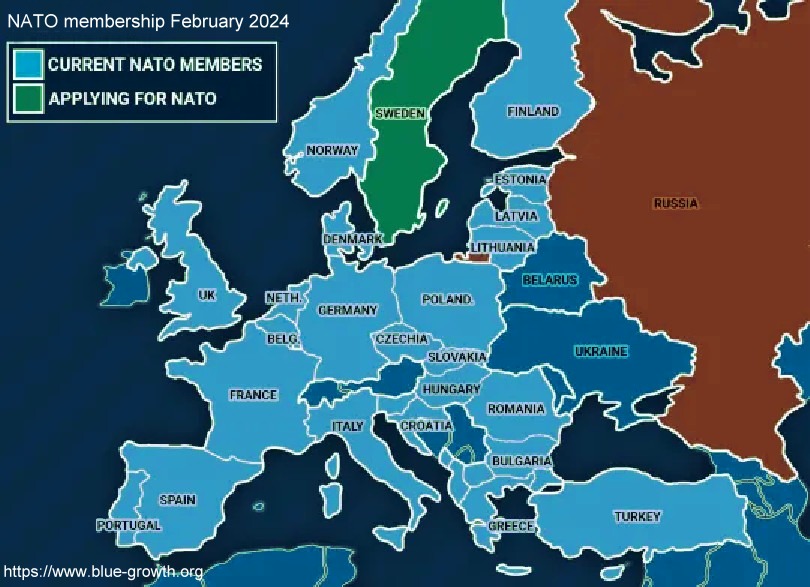
METRO 25 JANUARY 2024 - COULD THE UK BE DRAWN INTO WAR? THREE THREATS THAT COULD SPARK WORLD WAR THREE
Ominous warnings from Russia, missile strikes in the Middle East and uneasy diplomacy in China – the threat of World War Three has never loomed larger.
In a chilling speech earlier this month, defence minister Grant Shapps declared that international relations have entered ‘a new era’.
‘We must be prepared to deter our enemies, prepared to lead our allies and prepared to defend our nation whenever the call comes,’ he said.
Shapps said Russia, China and Iran posed serious threats, calling them ‘unstable’ and ‘irrational’.
And it’s not the only time a top UK figure has alluded to war in recent weeks.
Britain’s top general on Tuesday warned that civilians could be conscripted to fight a war against Russia, saying the UK’s military is much ‘too small’ to handle such a conflict on its own.
General Sir Patrick Sanders believes there should be a ‘shift’ in the mindset of the public regarding their willingness to defend their country against foreign adversaries.
General Sanders’ remarks come nearly two years after he said Britain was facing a ‘1937 moment’ – a reference to the two years preceding the Second World War.
Here’s everything we know right now.
WILL THE UK GO TO WAR WITH RUSSIA?
Russia’s war in Ukraine is fast approaching its 700th day, with its two-year anniversary taking place on 24 February.
While Ukraine’s army regained some territory in recent counteroffensives, the situation on the ground has remained much the same since Vladimir Putin’s invasion.
The Russian President plans to boost his country’s military with an additional 170,000 troops, according to reports – signalling Russia’s commitment to step up the conflict.
A leaked document from the German Ministry of Defence earlier this week laid out Russia’s plan to launch a spring offensive in Ukraine in February.
The report also warned that Russia could launch covert attacks on NATO territory as early as July this year.
There are already signs that Russia is prepared to breach NATO borders. In December, a Russian drone crater was discovered in a Romanian village.
A Russian assault on a NATO member could trigger Article 5 of the NATO treaty, which means the country under attack would be entitled to help from other countries in the alliance.
The treaty says that member states would be required to take ‘such action as it deems necessary, including the use of armed force’.
In this situation, the UK and other NATO members would not be obliged to declare war on Russia – although it remains a possibility.
It’s likely that the UK would at least deploy troops, alongside other NATO countries, in such a scenario.
Ukraine is not a member of NATO, which is why the UK did not go to war with Russia following the 2022 invasion.
The UK has pledged almost £12 billion in support to Ukraine, as well as supplying tanks and strike missiles and providing training to Ukrainian troops.
Prime Minister Rishi Sunak recently warned that ‘if Putin wins in Ukraine, he will not stop there’.
‘That is why Ukraine’s security is our security,’ he added.
Elsewhere, fears of a war with Russia are growing.
Sweden’s civil defence minister Carl-Oskar Bohlin in January told citizens to consider joining a ‘voluntary defence organisation’, as he warned that the risk of war was greater than at any time since World War Two.
Donald Trump, who is currently leading the race to become the Republican’s presidential nominee ahead of the US election in November, allegedly said he would not help the European Union if it came under attack.
WHAT'S GOING ON IN THE MIDDLE EAST
- AND COULD IT ESCALATE?
International attention has been fixed on the Middle East since Hamas’s attack on Israel on 7 October, and Israel’s resulting bombardment of the Gaza Strip.
In response, the Houthis – a political militant group who control much of northern Yemen – kicked off a targeted campaign of drone and missile attacks on commercial ships in the Red Sea.
The group said they are targeting Israeli-linked vessels in support of the Palestinian people.
Almost two months into the Houthi assaults, the UK and US launched military strikes on rebel targets on January 11.
Logistical hubs, air defence systems and weapons storage locations were hit by airstrikes, according to officials.
Corey Ranslem, CEO of maritime intelligence company Dryad Global, told Metro.co.uk that clashes between the US and the Houthis could continue in the coming weeks.
‘The US has put together the coalition, Prosperity Guardian, to counter the attacks within this region,’ the US Coast Guard veteran said.
‘This operation involves a number of countries and the priority is to provide air cover for commercial vessels operating within this region.’
US President Joe Biden warned that the US could retaliate further, saying: ‘We will make sure that we respond to the Houthis if they continue this outrageous behaviour along with our allies.’
Former President Donald
Trump, meanwhile, has warned that the US stands ‘on the brink’ of WWIII after three American soldiers were killed in a drone strike in Jordan.
Republican US senators have been piling pressure on Joe Biden in the wake with one calling for ‘devastating retaliation across the Middle East’.
Prime Minister Rishi Sunak said the actions of the Houthi rebels represented the ‘biggest attack on the Royal Navy for decades’.
He added that the UK launched strikes on two Houthi sites in ‘limited, necessary and proportionate self-defence’.
The Houthis are fighting a Saudi Arabia-backed military coalition in Yemen’s civil war, which has been ongoing for almost a decade.
The UK, who sees Saudi Arabia as an ally, has supplied weapons to the Saudi-led side for seven years.
However, despite its relationship with Saudi Arabia and strikes on Houthi forces, recent statements have made it clear that the UK wants to avoid war in the region.
In a joint statement from the US, the UK, Australia, Bahrain,
Canada, Denmark, Germany, Netherlands, New Zealand and South Korea said the ‘aim remains to de-escalate tensions and restore stability in the Red Sea’.
The Houthis are backed by Iran, who support a number of groups across the Middle East as part of its ‘Axis of Resistance’.
Iran has launched attacks on three countries in the Middle East in recent days.
On Tuesday, it carried out strikes in Pakistan, reportedly killing two children.
Pakistan called the attack an ‘illegal act’ and an ‘unprovoked violation of its airspace by Iran’.
Pakistan on Thursday hurled a volley of retaliatory missiles into Iran. Three women and four children were killed, according to officials.
Pakistan said it ‘fully respects’ Iran’s ‘sovereignty and territorial integrity’, but added that it carried out the strikes to ‘protect and defend its national security against all threats’.
Both countries believe the other is harbouring militant groups.
Iran said its strikes on Pakistan were aimed at Jaish al-Adl, a militant group that has carried out attacks in Iran, while Pakistan said it was targeting Baloch separatist groups inside Iran.
Iran has also attacked groups in Iraq and Syria this week.
IS CHINA A THREAT TO THE UK?
Tensions between China and Taiwan have mounted in recent years.
Taiwan is an island nation 100 miles off the coast of China. The country has had many different rulers over the course of its history.
In the 17th century, it was controlled by the Chinese empire, before it was claimed by Japan in 1895.
When Japan lost World War Two, China regained power.
Today, Taiwan is self-governed, but it is neither officially independent from China nor united with it.
Many Taiwanese people want their country to be recognised as separate from China.
Earlier in January, Taiwanese voters elected Lai Ching-te as their new President.
Lai previously served as vice president of the Democratic Progressive Party, which rejects China’s territorial claims in Taiwan.
China views Lai as a dangerous supporter of Taiwanese independence.
While Lai said that he had an ‘important responsibility to maintain peace and stability in the Taiwan Straits’, he also cautioned that he is ‘determined to safeguard Taiwan from threats and intimidation from China’.
Only 13 nations recognise Taiwan as a state.
Countries are reluctant to make such a declaration as doing so would threaten diplomatic ties with China.
While it does not recognise Taiwan as a state, the US is one of the country’s key allies. It’s made a legal commitment to provide Taiwan with weapons if it needs to defend itself.
The UK government has said it has no plans to recognise Taiwan as an independent state.
However, the relationship between the two countries has strengthened in recent years, with the UK sending its warships on operations through the Taiwan Strait.
Last year, a group of British MPs called on the government to give ‘as much help as possible’ to Taiwan to defend itself against China.
It’s unclear whether China really plans to ever invade Taiwan.
Speaking last year, former foreign secretary James Cleverly said that ‘no country could shield itself from the repercussions of a war in Taiwan’.
IS THE UK PREPARED FOR WAR?
The UK spends around £50 billion a year on defence. [Much of which goes on procurement fraud]
Earlier this week, the Ministry of Defence announced that 20,000 troops from the
Royal
Navy, the British Army and the
Royal Air force will be deployed across Europe in the first half of 2024.
It is one of the largest NATO deployments since the Cold War.
Defence secretary Grant Shapps announced that the government will spend around £13 billion on ‘next generation’ Dreadnought
submarines, which carry
Trident nuclear
missiles.
‘If we are to defend our homeland, we must ensure our entire defence eco-system is ready,’ Shapps said.
Rishi Sunak added: ‘In dangerous times, we are investing in defence, hardening our critical infrastructure and building our alliances.’
[Solution: Stop importing anything
from China. if India continues to purchase Russian fossil
fuels, stop imports from India. This qualifies as diplomacy,
a blue
growth strategy.]
SURVIVING
A NUCLEAR HOLOCAUST
While the threat of nuclear war is a critical concern, it's important to understand that preventing nuclear conflict is paramount. Nuclear winter is a hypothetical scenario with devastating consequences, and preparing for it can only offer limited and uncertain benefits in the face of an event that must be actively prevented through diplomacy and global
cooperation, if at all possible.
However, if the unthinkable were to happen, it's crucial to note that there is no guaranteed way to survive a nuclear winter. The severity of its impact would depend on numerous factors, including the scale of the nuclear exchange and the prevailing environmental conditions.
If Iran and North Korea don't turn chicken, the
thermonuclear fallout will be expansive, potentially all
encompassing. Meaning longer in bunkers, on stored foods and
H2O.
Here are some general precautions that might be considered if such a catastrophic event were to occur:
Immediate Shelter:
1. Seek immediate shelter in a subterranean location like a basement, underground bunker, or subway station. These offer some protection from the initial blast, heat, and radiation.
2. Remain indoors for at least 24-48 hours as this allows
radioactive fallout to settle, significantly reducing its immediate threat.
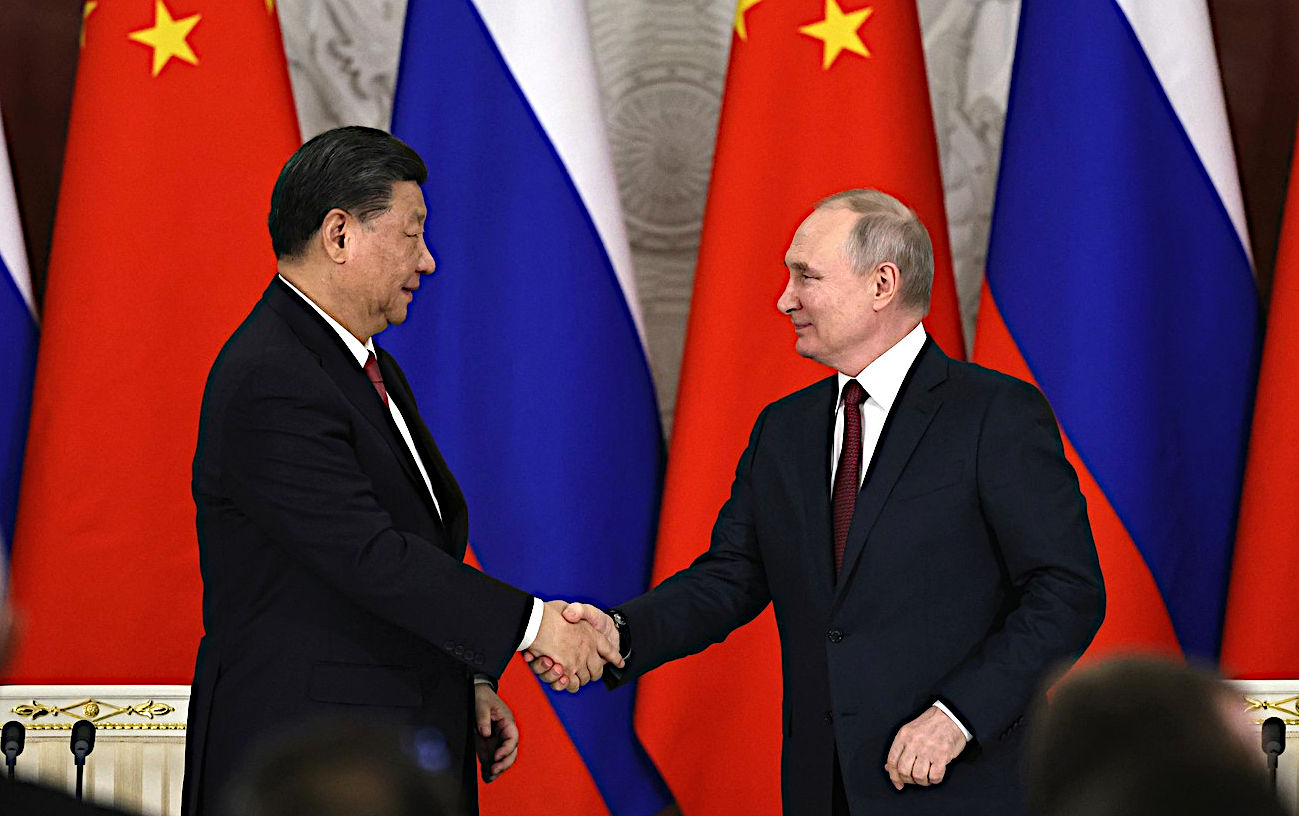
"WE'LL
GET THE BASTARDS" - China
has a long established relationship with Russia, to include
satellites for space wars, apart from the import of cheap
fossil fuels, to underpin a massive building programme that
would end in tears, and bankruptcy. It may be that the only
way to force the "Strategic" partnership to back
down is to deploy nuclear missiles. That is of course why
the US, UK, France and other nuclear nations have such
weapons. This is the big "stick" references by Sir
Winston Churchill. Presumably then, prudence demands that
NATO, and NATO's allies - that should now include South
America, Australia and any enemy of China, such as Taiwan
and South Korea. Should be preparing to survive a nuclear
exchange.
Long-Term Survival:
- Food and water stockpiles: Having access to non-perishable
food and
water is crucial for long-term survival. Aim for a minimum of two weeks' supply per person, and ideally much longer if possible.
- Air filtration: Filtering the air you breathe is essential as radioactive dust can be present for weeks or months. Consider purchasing HEPA filters or improvising filtration systems using available materials.
- Medical supplies: Maintaining a basic stock of first-aid and medical supplies is important to address potential injuries and illnesses.
- Community and communication: Establishing communication channels and cooperating with others is crucial for sharing resources, information, and emotional support.
It's crucial to emphasize that these measures are highly speculative and offer no guarantee of survival. The consequences of a nuclear winter would be catastrophic, with widespread environmental damage,
food
shortages, and societal collapse.
Therefore, preventing nuclear war is the only truly effective way to avoid the horrors of nuclear winter. This necessitates continued efforts towards diplomacy, non-proliferation, and risk reduction. Individuals can contribute by supporting organizations dedicated to
peace-building and global security and advocating for policies that promote dialogue and understanding between nations.
[Solutions: Start building communal
nuclear fallout shelters, one for every village, and keep
them fully stocked with food and water. Amend the Permitted
Development Orders, to allow building of private underground
shelters, without the need to apply for planning permission.
We'd also need early warning sirens, linked to the military,
to give at least a two minute warning. This qualifies as a blue
growth strategy, sending a clear message to China,
India, Iran, North Korea and Russia, etc., that we are
preparing for the end game. Suggest the same for African
allies, Australia, USA, Canada, Commonwealth islands, South
America, Pakistan, and European allies. In other words a
unified response. Giving those in an extended NATO alliance,
the upper hand. Go ahead, spark a nuclear war. You will
lose! At the moment, it is 50/50. We need to improve the
odds of survival.]
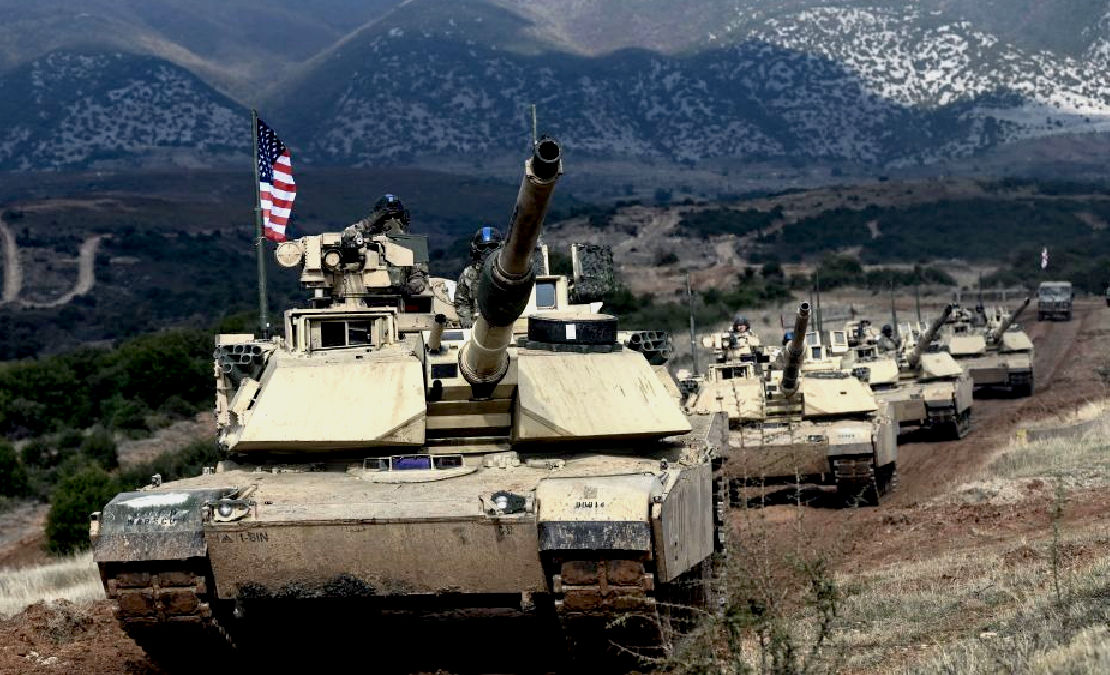
The war between Russia and Ukraine has undoubtedly presented a complex situation for NATO member nations, with potential implications for both climate change and defence spending. Let's
take a look at some of the main points.
CLIMATE CHANGE
Increased Focus on Energy Security: The war has exposed Europe's dependence on Russian energy sources, particularly natural gas. This has sparked renewed efforts to diversify energy supplies and accelerate the transition to renewable energy sources. While this long-term shift could ultimately benefit climate change mitigation, short-term solutions might involve increased reliance on fossil fuels from other sources, potentially offsetting some of the progress made on emissions reduction.
Potential Disruption of Climate Action: The war is diverting significant resources and attention from other pressing global issues, including
climate
change. This could disrupt international cooperation on climate action initiatives and hinder progress towards achieving emissions reduction targets.
DEFENCE SPENDING
Increased Defence Expenditure: The war has heightened security concerns among NATO members, leading to calls for increased defence spending. Many member states have committed to raising their defence budgets to meet the alliance's target of spending 2% of GDP on defence. This shift in resources towards defence comes at the expense of other budgetary priorities, potentially including investments in climate change initiatives.
Potential Long-Term Impacts: The war could have long-term consequences for NATO's strategic direction. If the conflict persists or escalates, it may necessitate continued high levels of defence spending, creating a persistent tension between
security needs and climate action.
MEMBER
NATIONS PERSPECTIVES
Balancing Act: Member nations face the challenge of balancing their response to the war with their commitments to address climate change. This could involve seeking solutions that address immediate security concerns while still promoting long-term sustainability.
Diversity of Views: There will likely be divergences in member states' perspectives on how best to navigate this complex situation. Some countries might prioritize immediate security needs, while others might emphasize the importance of maintaining focus on climate action.
It is important to note that this is a rapidly evolving situation, and the long-term consequences of the war for NATO and climate change are still uncertain. However, the above points highlight some of the potential challenges and opportunities that the war presents for member nations.
It's also worth noting that some argue that increased defence spending can coexist with
climate
action.
Some propose investing in "green defence" technologies to improve efficiency and minimize environmental impact. Additionally, some believe that by addressing the root causes of conflict, such as
poverty and resource scarcity, NATO can contribute to a more stable and
sustainable future.
Ultimately, how individual member nations and NATO as a whole
navigate this complex situation will depend on their evolving priorities and the trajectory of the war in
Ukraine.
Ukraine
represents the fight for freedom and the rights of every
human to live a full life, free from oppression.
https://www.nato.int/cps/en/natohq/news_223084.htm
https://www.nato.int/cps/en/natohq/news_223084.htm
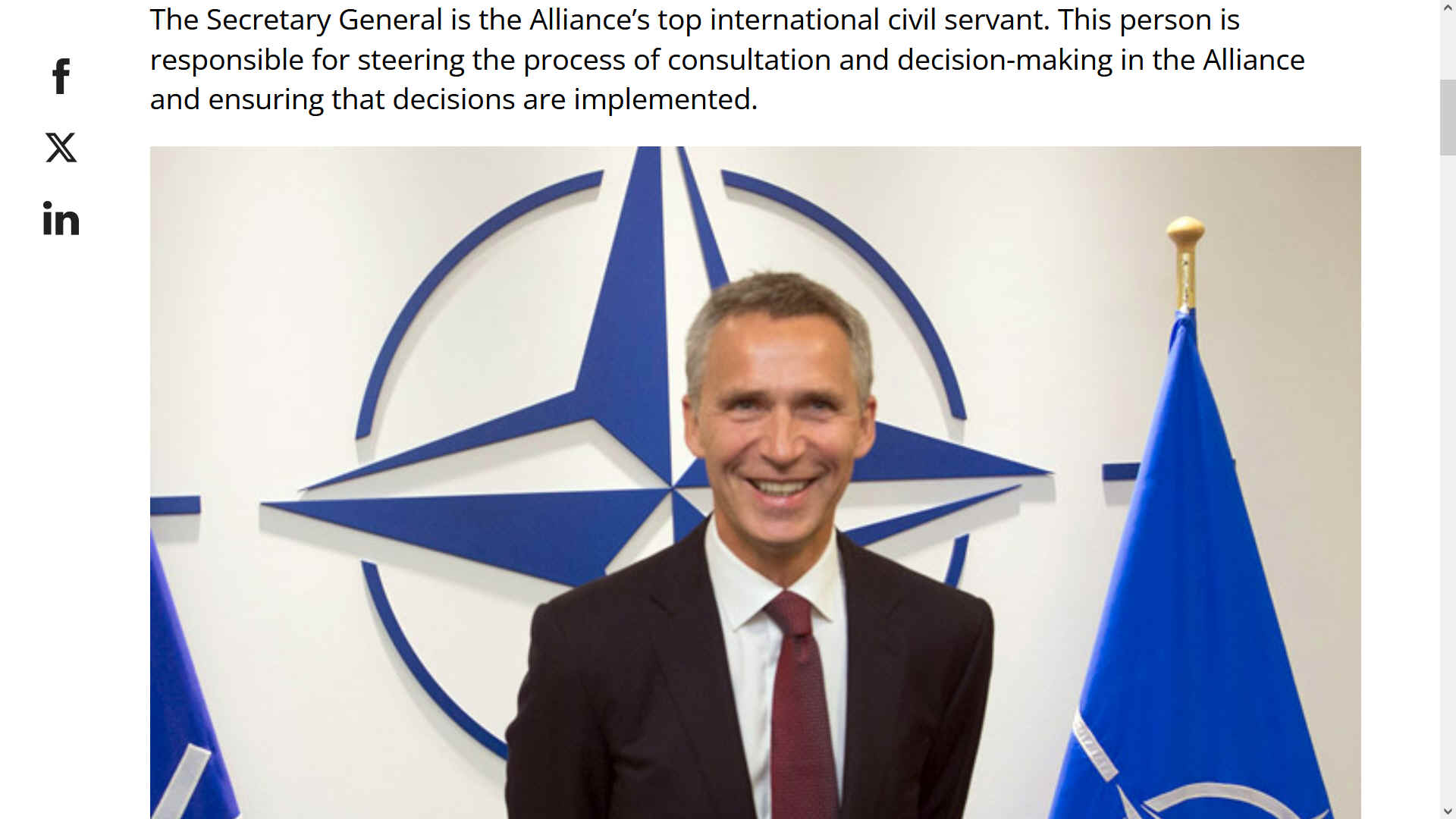
"WHAT'S
HE LAUGHING ABOUT?" - This is no time for joking.
Europe and the UK have no early warning system in place. Why
is that?
NATO
CONTACTS
At present, NATO has 31 member countries. These countries, called NATO Allies, are sovereign states that come together through NATO to discuss political and security issues and make collective decisions by consensus.
NATO was created by 12 countries from Europe and North America on 4 April 1949. Since then, 19 more countries have joined NATO through nine rounds of enlargement (in 1952, 1955, 1982, 1999, 2004, 2009, 2017, 2020 and 2023). Article 10 of the North
Atlantic Treaty sets out how countries can join the Alliance. It states that membership is open to any "European State in a position to further the principles of this Treaty and to contribute to the security of the North Atlantic area".
Any decision to invite a country to join the Alliance is taken by the North
Atlantic Council, NATO's principal political decision-making body, on the basis of consensus among all Allies.
The Secretary General is the principal spokesperson of the Alliance and represents the Alliance in public on behalf of the member countries, reflecting their common positions on political issues.
The post is currently held by Jens Stoltenberg, former Prime Minister of Norway, who took up his responsibilities on 1 October 2014. Considering
the lack of preparations generally, should we not have a
shake up. Should we not bring in someone more in tune with
what is actually happening around the world?
https://www.mirror.co.uk/news/us-news/world-war-3-5-chilling-31982999
https://www.mirror.co.uk/news/us-news/world-war-3-5-chilling-31982999
https://www.nato.int/
https://www.nato.int/
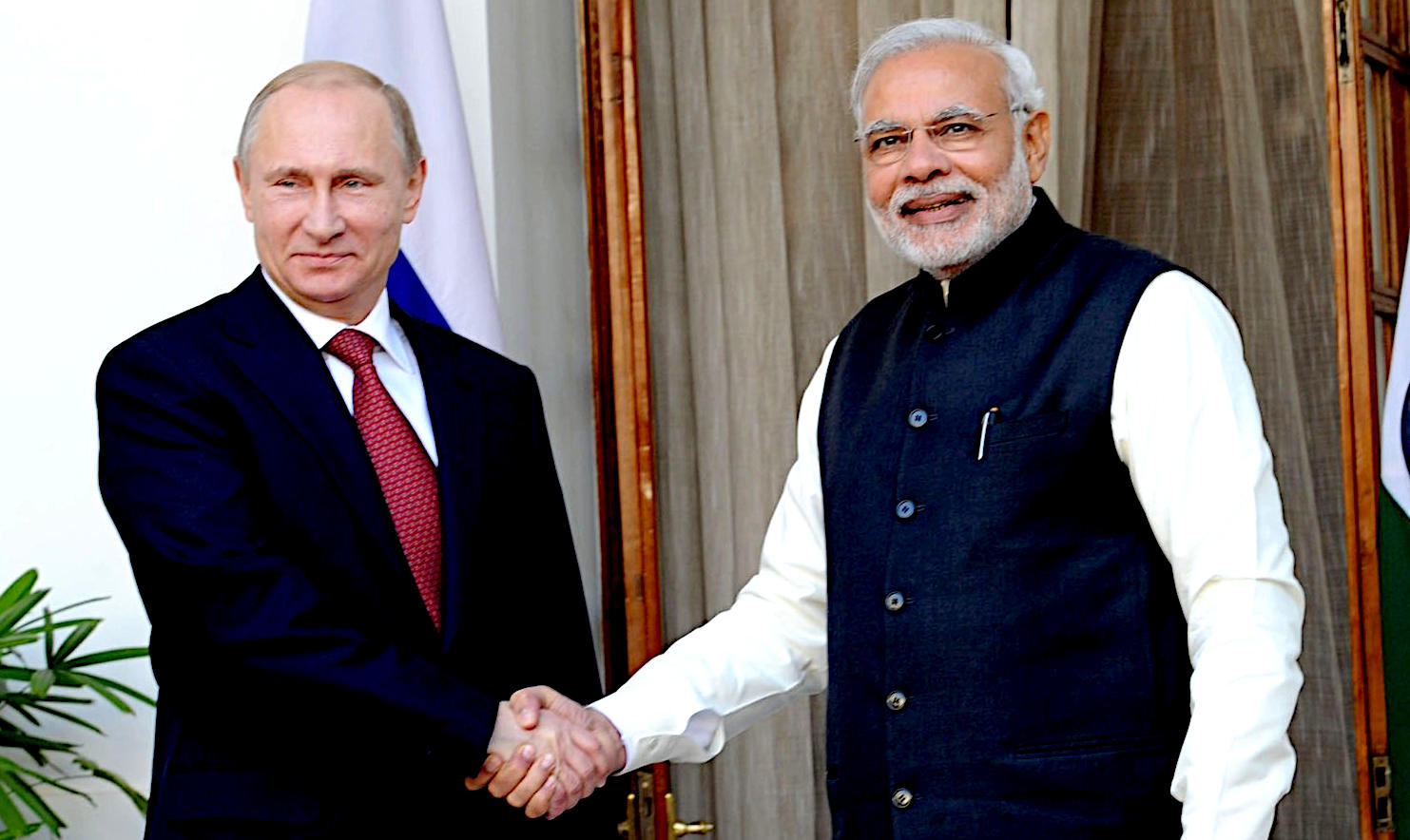
"WE'LL
HELP BY BUYING YOUR OIL OLD CHAP" - Vladimir
Putin and Narendra Modi, no doubt shaking hands on some
deal, one of which could have been the continued supply of
fossil fuels to underpin the rapid industrial expansion of
India's economy, nuclear navy and space program. Despite,
those exports financing Russia's invasion of Ukraine.